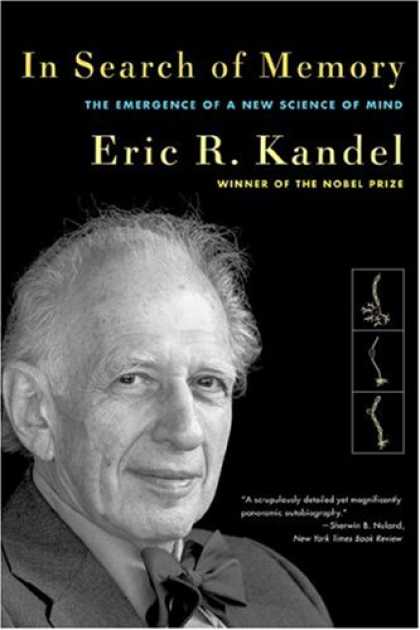A few weeks ago, I read Eric Kandel’s In Search of Memory. It was different from the books that I normally post about here, as it is an autobiography with the emergence of modern neurobiology woven in, rather than an argument for this or that perspective. But I am a neurobiologist at heart and an aspiring scientist at the very beginning of my career, so I couldn’t resist:
Eric Kandel won the nobel prize in the year 2000 for his pioneering work on the molecular mechanisms of memory formation and storage. In this book, Kandel lays down the path of his life, professional and otherwise, from his earliest days in Vienna, just before World War II, up through his acceptance of the nobel prize in Stockholm, just a few years ago. His book will be of interest to biologists, philosophers, psychologists and laymen alike. The material is presented in the order that it was first discovered and assumes no prior knowledge, leaving no bars to entry for this exciting journey. All the same, weathered experimentalists will surely enjoy the ride that is the birth of this new science, from single-cell recordings in hippocampal cells, to the neural networks of Aplysia, to the beginnings of the differentiation of the neural substrates for unconscious vs conscious information processing.
And a fun fact for those who are, like me, still trying to break into this field: What was Eric Kandel, nobel laureate in biology, studying in his Junior year of college? None other than Northern European History. He didn’t set foot in a lab until medical school, when he was entranced by the promises of psychoanalytic theory. I think we’ll be ok.
Finally, for those of you who wonder what I am doing when I am not reading or writing about consciousness (or wonder why I post so scarcely now!), I am now excitedly spending the majority of my time in the BRAIN Lab at Washington University in St. Louis on a summer research fellowship studying up on neurogenetics (i.e., how genetic variation influences how our brains respond to our environment and modulates risk for psychopathology). Check us out!
